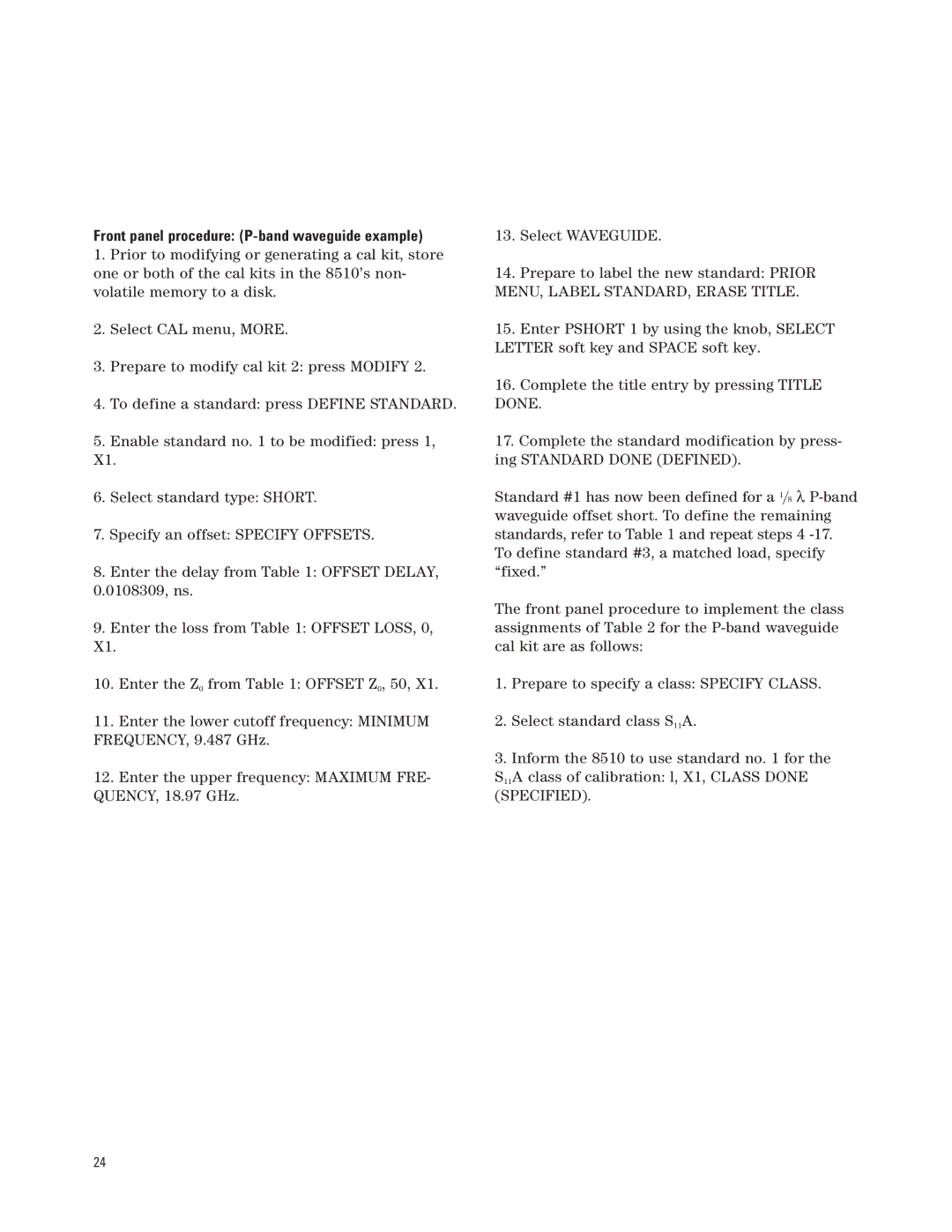Front panel procedure: (P-band waveguide example)
1.Prior to modifying or generating a cal kit, store one or both of the cal kits in the 8510’s non- volatile memory to a disk.
2.Select CAL menu, MORE.
3.Prepare to modify cal kit 2: press MODIFY 2.
4.To define a standard: press DEFINE STANDARD.
5.Enable standard no. 1 to be modified: press 1, X1.
6.Select standard type: SHORT.
7.Specify an offset: SPECIFY OFFSETS.
8.Enter the delay from Table 1: OFFSET DELAY, 0.0108309, ns.
9.Enter the loss from Table 1: OFFSET LOSS, 0, X1.
10.Enter the Z0 from Table 1: OFFSET Z0, 50, X1.
11.Enter the lower cutoff frequency: MINIMUM FREQUENCY, 9.487 GHz.
12.Enter the upper frequency: MAXIMUM FRE- QUENCY, 18.97 GHz.
13.Select WAVEGUIDE.
14.Prepare to label the new standard: PRIOR MENU, LABEL STANDARD, ERASE TITLE.
15.Enter PSHORT 1 by using the knob, SELECT LETTER soft key and SPACE soft key.
16.Complete the title entry by pressing TITLE DONE.
17.Complete the standard modification by press- ing STANDARD DONE (DEFINED).
Standard #1 has now been defined for a 1/8 λ
The front panel procedure to implement the class assignments of Table 2 for the
1.Prepare to specify a class: SPECIFY CLASS.
2.Select standard class S11A.
3.Inform the 8510 to use standard no. 1 for the S11A class of calibration: l, X1, CLASS DONE (SPECIFIED).
24
